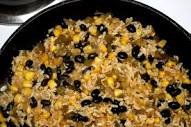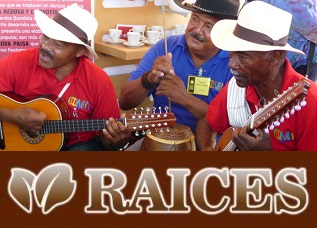Hispanic Link News Service
Black beans again?
It seemed my mother’s favorite dish somehow manages to make it to the table more than once every couple of weeks. Moros y Cristianos, or black beans and rice, still grace our family table whenever I am home from college. My mother learned to prepare the Cuban specialty from Emiliano’s Latin Café in Gainesville, Florida, which still serves the dish today, although my mother’s is the best.
I can tell she is preparing it long before I pass the threshold of the kitchen. The black pearls are slow-cooked all day with onions, garlic, bay leaves and, naturally for Southerners, a smoked ham hock. With the frijoles still cooking, their accompaniment, corn bread, is baking in the cast-iron skillet.
No Cuban heritage flows through my veins, although my olive-toned German grandfather could pass for one if I were to stereotype him, but this simple meal makes our family Cuban for the evening. Here at Florida’s Flagler College I bring it to microwave for my lunch, Most of my friends ask what it is, amazed that such a flavorful delicacy could be prepared without ever having crossed into the city limits of Santiago de Cuba.
Over the next few days our family can expect a wide variety of black bean-themed meals, including black bean soup, black bean enchiladas, and an encore of black beans with yellow rice.
While most in our family’s neighborhood circle would bring platters of sandwiches, shrimp cocktails or homemade potato salad for a potluck gathering, my mother arrives with her black beans. Inquiring minds were always hesitant, but soon everyone has a portion and becomes Cuban for the night.
I have since learned to prepare the dish, knowing that it takes little time to prepare but a long time to cook. It waits for me when I’m late arriving at my apartment, or if I want to reminisce with friends a little of the home I left not so long ago.
I’ve sampled the black soupy concoctions of many restaurants, each trying to make Moras y Cristianos just the way their proprietors’ ancestors did or how they imagine TV chef Bobby Flay would do it, but there is none like Momma’s. Most lack the depth of flavor that she infuses in hers. Where is the garlic? The ham? Where are the bits of onion that melt on your tongue?
Now my table is adorned not only with Momma’s frijoles negroes, but pork marinated in mojo — mountains of arroz amarillo and copious amounts of cilantro, lime and plátanos. It’s come a long way.
My hope is this meal will one day pass to future generations of my family and friends. Even though Momma won’t always be around to tell us we should have used less limón or added more comino, I will have the memories of our family table. The aroma of Moros y Cristianos has engraved tradition in my memory for years and hopefully generations to come.
(Jacob A. Jones will graduate from Flagler College with a degree in English literature this year. For his version of his mother’s recipe, reach him at jjones550@flagler.edu.)
For this and other Hispanic news and commentaries in Spanish as well as English, visit www.hispaniclink.org.














